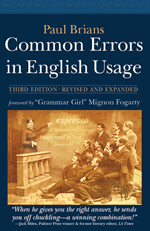French Impressionist Painting
elizabeth.wassonFrench Impressionist painting is currently the most popular of all European bodies of art. Part of the romance of Impressionism comes from the stories of uphill struggles against the Academic painters and critics who dominated 19th-century French art, only to be swept into obscurity by the artists they had scorned. However, a reaction was bound to set in, and during the final decades of the 20th century, a number of politically oriented critics began to argue that far from being radicals, the Impressionists appealed to bourgeois tastes partly because their technique was easy to digest and their subject matter inoffensive. They point out that the industrialization of Europe is rarely reflected in their works, and that they paid little or no attention to the sufferings of the urban poor. Many of them were acutely conscious of their popularity, and eager to cash in on it.
This school of thought has had next to no impact on popular opinion, which still embraces the Impressionists fervently; but it did have an apparent impact on the series we are using for this course:Art of the Western World, hosted by Michael Wood. Rather than devoting an entire episode to the Impressionists, he covers them rather hastily in a much larger context. Since I find the “case” against the Impressionists rather shallow, I am supplementing the videotape you will be watching with this Web assignment, to give you a broader acquaintance with this important art movement.
First view the videotape, “Art of the Western World, 7: A Fresh View: Impressionism and Post-Impressionism” and do the writing assignment in The Bridge threaded discussion on this tape.
Later, for the second Impressionism assignment, you will return to this page and do the following:
Begin by reading the Wikipedia article on “Impressionism.”
Then click on the names of two of the Impressionist artists listed there and read what Wikipedia has to say about them.
Finally, explore some of these sites:
More Study Guides for 18th and 19th Century European Classics
- Using these Guides
- Syllabus
- Beethoven: Symphony no. 9
- Verdi: La Traviata
- The Enlightenment
- Voltaire: The Philosophical Dictionary
- The Problem of Evil
- Jacob Bronowski’s film, Knowledge or Certainty
- Romanticism
- Goethe: Faust
- Women Artists Assignment
- Realism & Naturalism
- Zola: Germinal
- 19th-Century Russian Literature
- Dostoyevsky: Notes from Underground
- Foreign Words and Phrases translated from Dostoyevsky’s The Brothers Karamazov
- The Influence of Nietzsche
- Nietzsche: Thus Spoke Zarathustra
- Introduction to 19th-Century Socialism
- Misconceptions, Confusions, and Conflicts Concerning Socialism, Communism, and Capitalism
- Marx and Engels: The Communist Manifesto
